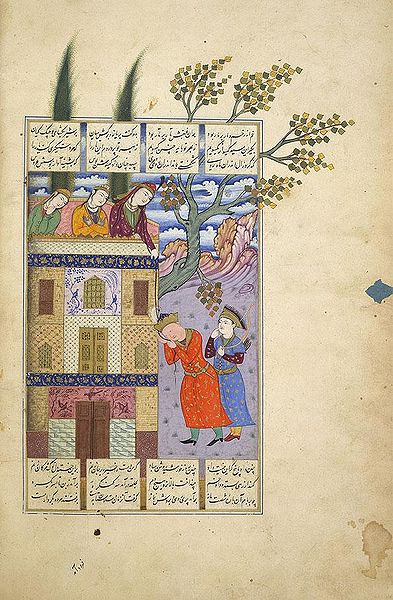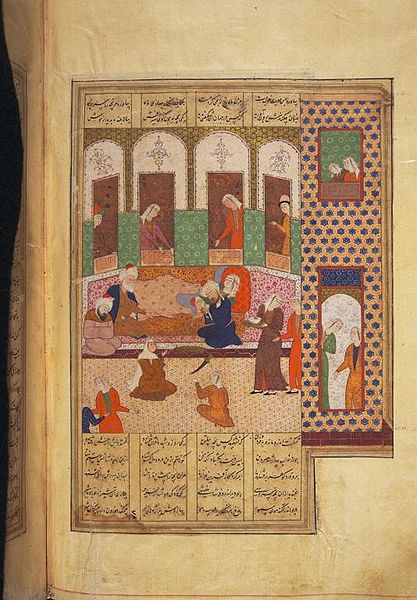Rudāba or Rudābeh is a Persian mythological female figure in Ferdowsi's epic Shahnameh. She is the princess of Kabul, daughter of Mehrab Kaboli and Sindukht, and later she becomes married to Zal, as they become lovers. They had two children, including Rostam, the main hero of the Shahnameh.
Rudaba, Persian miniature
Rudaba gives birth to Rostam who later on became one of the greatest Persian heroes
The Shahnameh, also transliterated Shahnama, is a long epic poem written by the Persian poet Ferdowsi between c. 977 and 1010 CE and is the national epic of Greater Iran. Consisting of some 50,000 distichs or couplets, the Shahnameh is one of the world's longest epic poems, and the longest epic poem created by a single author. It tells mainly the mythical and to some extent the historical past of the Persian Empire from the creation of the world until the Muslim conquest in the seventh century. Iran, Azerbaijan, Afghanistan, Tajikistan and the greater region influenced by Persian culture such as Armenia, Dagestan, Georgia, Turkey, Turkmenistan and Uzbekistan celebrate this national epic.

Plate with a hunting scene from the tale of Bahram Gur and Azadeh. The imagery on this plate represents the earliest known depiction of a well-known episode from the story of Bahram Gur, which seems to have been popular for centuries, but was only recorded in the Shahnameh, centuries after this plate was created. Iran, c. 5th century A.D. Metropolitan Museum of Art
'Rostam cycle', fragment of the Penjikent murals in the Hermitage Museum. 7-8th-century
Beaker (mina'i ware) illustrating the story of Bijan and Manijeh. Iran, late 12th century. Freer Gallery of Art
Page from the Florence Shahnameh, the oldest known Shahnameh manuscript. Anatolia, 1217. National Central Library of Florence






